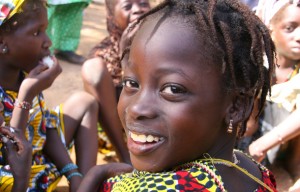 Mali is a beautiful country in the Northwest part of the African continent. Landlocked in an arid region, Mali is one of the most dry places on earth. Despite its stark natural beauty, Mali is a place where people struggle considerably with health problems. Particularly due to unclean drinking water, some of the most common health problems found in Mali are Hepatitis A, diarrhea, typhoid fever, dengue fever and malaria. Through out Mali, there are problems of inadequate nutrition, sanitation and hygiene practices. There are high mortality rates in every demographic of Mali.
Mali is a beautiful country in the Northwest part of the African continent. Landlocked in an arid region, Mali is one of the most dry places on earth. Despite its stark natural beauty, Mali is a place where people struggle considerably with health problems. Particularly due to unclean drinking water, some of the most common health problems found in Mali are Hepatitis A, diarrhea, typhoid fever, dengue fever and malaria. Through out Mali, there are problems of inadequate nutrition, sanitation and hygiene practices. There are high mortality rates in every demographic of Mali.
Health care in Mali is no where near adequate enough to sustain its population. The health care system of Mali is severely underfunded, and the people of Mali depend heavily on outside provision to meet their health needs, such as the help of international health organizations and missionary groups. Medicine is in short supply in Mali, as are clinics and doctors. It is not uncommon for one doctor to be the only doctor available to a region of 100,000 people, which leaves the average resident of Mali almost completely without health care.
The reason for these challenges is an unfortunate history that has lead to crisis in poverty, political conflict and harsh natural conditions. Mali is one of the most poverty ridden countries on earth, with the average family surviving on next to nothing. There is also a great deal of political conflict and rebellion, which leaves residents and citizens displaced and in a refugee state, increasing the poverty and chaos. The drought conditions in Mali are very harsh, leaving its residents and citizens without vegetation, water or other natural provisions.
It is needless to say, Mali needs a great deal of help and development before its healthcare can be considered functional and adequate. There are many elements of a nation state that need to come together in order to heal the level of poverty, disease and dysfunction that can be found in Mali, and residents remain hopeful that they can overcome these difficulties by working together.